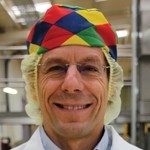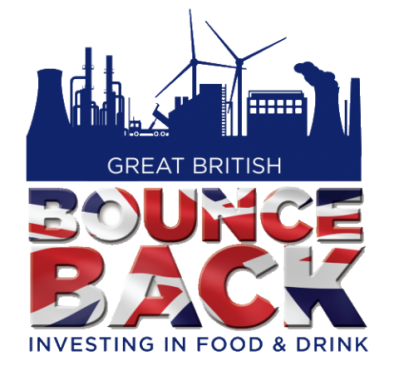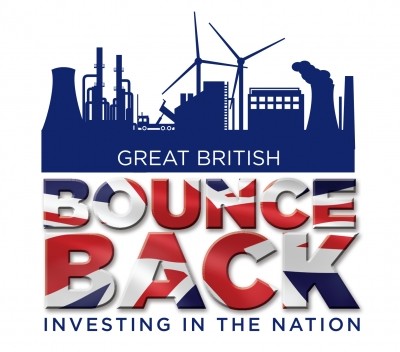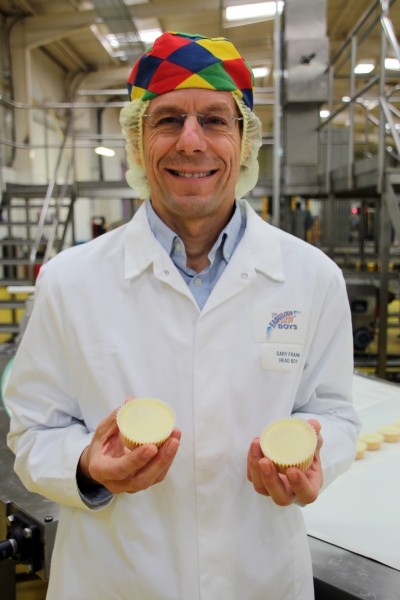Dream player

Like most successful businesses, The Fabulous Bakin' Boys began with a dream. But this dream was not some vague hope of wealth, power and corporate success. This was your genuine old-man-with-a-white-beard-type dream.
Gary Frank, self-styled head boy of the firm, recalls: "In the dream, this old boy with long white hair, beard and gown said: 'Gary, go and make donuts'. That was weird, I can tell you it was as big a shocker as losing all my money."
The last statement refers to the financial crash of October 1987, which ended Frank's career as a stock index futures trader on Wall Street, New York City. He returned to the UK penniless.
So, after nearly a year out of work and little to lose, Frank decided to take the old man's advice. Six months later, after looking up donuts in the Yellow Pages, Frank opened the Delicious Donut company. It was a gritty beginning in a small industrial unit around the corner from the firm's current location in Witney, Oxfordshire.
"It was me and one employee. We used to start at midnight, taking five or six hours to fry donuts and pack them. Twice a week, I would load up my little van and go from door-to-door to shops, sandwich bars and delis in Oxford. Later, I would do the same, driving down to London four times a week."
In the first year, there was little to show for gruelling hours spent toiling over frying donuts. The business turned over £45,000 and made a £15,000 loss.
Sales pick up
But, a decision to supply flapjacks and muffins, after deals with local suppliers, led to more impressive sales figures. "We persevered with the donuts for a few years but we gave up transferring production solely to muffins and flapjacks. And that's when things really started developing. The whole bakery and snacks market didn't really exist in the early 1990s."
As Delicious Donuts reached a turnover of about £4M, Frank and his brother Jon, who co-own the business, decided to focus on retail sales. But a manufacturer called Delicious Donuts that didn't make donuts seemed to make little sense. So, the firm was rebranded as The Fabulous Bakin' Boys in October 1997.
"We saw an opportunity in that the cake picture was dominated by a couple of big brands. It's not a very innovative place from the branded point of view. But a lot of innovation goes on from the own-label point of view. And cake is fun. Plus we had a great range of products by then cupcakes, flapjacks and muffins that had some credibility behind them."
Fifteen years later, the wholly branded business is approaching a turnover of between £17–18M. "One of the things I've learnt in business is: stick to what you are good at. We're good at focusing on brands and producing them. Being an own-label supplier requires a different skillset, a different mentality and a different way of working," says Frank.
The bakery has two production lines one that makes muffins and cupcakes and a second that makes flapjacks and bar products such as fruit slices. There's also an offline area with the capacity to make more bespoke products.
Mini food products are produced at the rate of about 40,000 units an hour, while bars are made at the rate of about 25,000 26,000 units an hour.
Three-quarters of the firm's produce is sold through the big five supermarkets. The remainder is supplied to foodservice and contract catering outlets including trains, planes and ferries.
For the future, the Franks plan to take the business to a turnover of around £30–35M. "That would be the maximum capacity of the bakery, as it is set up. Then, we will see where we are, because there are still plenty of opportunities."
Not least of these is introducing a third production line to take the business up to "the next level" with a turnover of about £45M or so. There is also the export market to explore.
But to turn that promise into reality, the Frank brothers will have to extricate the business from the pincer movement of rising raw material costs and promotional activity.
"Everyone is still reeling from the commodity price increases which kicked off about 18 months ago," says Frank. "We took a call from our sugar supplier on a Friday afternoon to tell us from Monday our sugar price was going up 50%. It was on a take it or leave it basis. It was like the whole world suddenly went mad."
And it wasn't just sugar. Chocolate, flour and vegetable oil prices also soared. While raw material prices have improved recently, none has returned to the levels of several years ago.
The second challenge is the level of promotional activity. When the firm first started trading with the retailers about 10 years ago, the most competitive deal in cake was probably a buy two, get one free offer. Now, you see buy one and get two free, he says.
"It's just complete lunacy and not sustainable. The trouble is, everyone gets pulled into the game. If your competitors are doing one buy one get two free, you're not going to sell very much at full price no matter how good you are."
"This doesn't mean that we don't do promotions everyone has to. But our starting point is to make products that people buy because they are great products, for which they are prepared to pay full price, rather than because we give them away."
The Frank brothers' answer has been to focus on innovation and quality with the former giving rise to the latter. A robotic packaging solution from Spanish automation specialist Ulma became fully operational at the plant earlier this autumn.
The £3M investment delivers a fully automated packing line with two key benefits.
First, it increased plant capacity and efficiency. The automation has allowed a 22% increase in oven operating capacity and allowed a reduction in the number of people working on the line from 25 to 20. The total workforce numbers 120 people, including Czechs, Poles and Portuguese.
Second, it gave the firm the capability to produce mini, individually-wrapped versions of its range of cup cakes. "This is a tremendous unique sales point for us. It is a capability that nobody else has certainly not in the UK," says Frank.
Lunchbox heartland
"Our real heartland is around lunchboxes so we have developed the capability that everything we do is individually wrapped, which gives mum a big convenience factor. It also means that when you open the packet you can eat just one cake and the other five don't go stale because they are individually wrapped."
The turnkey solution handles the muffins once they have left the ovens and cooled. The Ulma line wraps them and puts them into shelf-ready packaging. It then puts the packs into cases for delivery, places the cases on the pallets and wraps the pallets in cling film.
Another benefit of the bakery is that it is nut free. The nut-free market is reckoned to be about 1% of the population and there are no other nut-free cake manufacturers, says Frank.
So, with the benefit of nearly 25 years' experience of donut and cake manufacturing behind him, what advice would he give to his younger self flying home broke from New York City? "All you really need is perseverance, be prepared to work incredibly hard and never take no for an answer. Donuts didn't work but muffins did. A small change makes a big difference."
And what of the dream that started his epic manufacturing journey? "I've never heard from the old boy again and I don't expect to. But it was life-changing," he says, smiling wryly.















